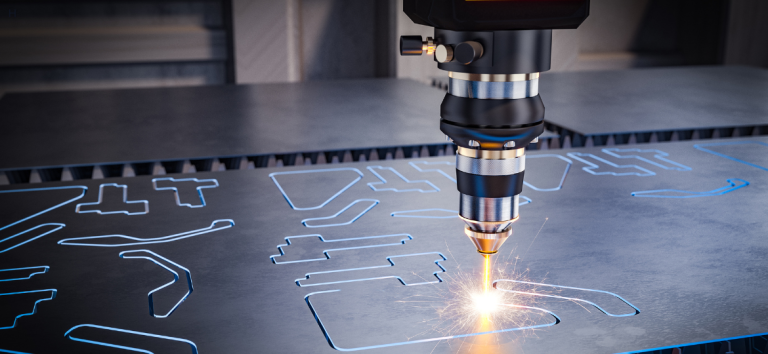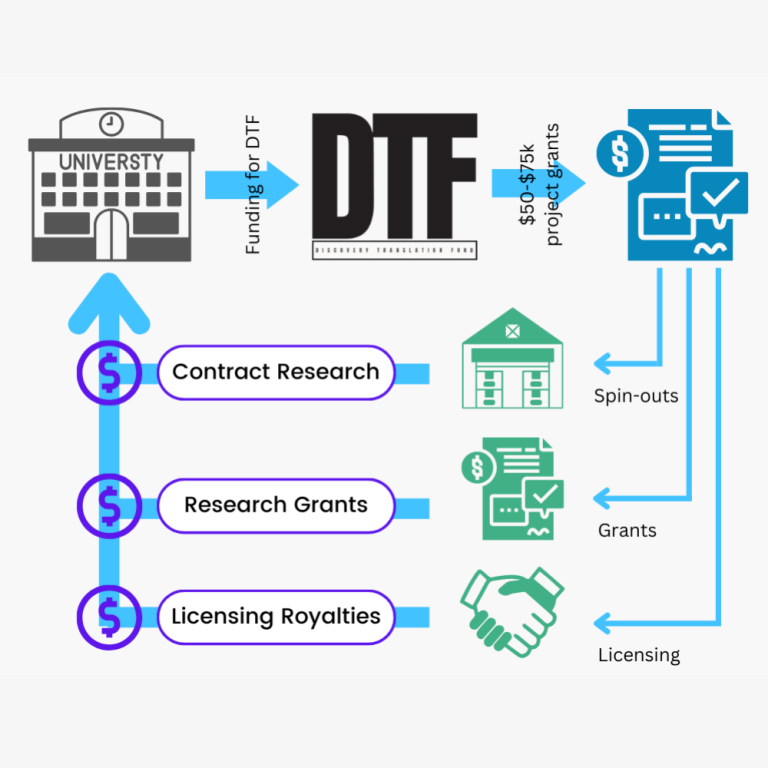That is the fundamental question the Discovery Translation Fund seeks to answer by funding translational activities that bridge the gap between research and commercial development.
Benefits of DTF
- Leveraged funding
- Spin-out creation
- Licensing deals
- Industry collaboration
- Institutional impact
- Contract research
- Income diversification


PROJECT CRITERIA
- Strong commercial potential.
- Underlying science, technology or concept is of high quality.
- IP position is novel and creates a barrier to entry.
- Submitting institution has rights to commercialise project IP.
USE OF FUNDS
- Proof-of-concept work
- Prototype development
- Technical validation activities
- Mouse trials
- IP advice
- Early-stage business development
- Market validation activities

A ten-year review of one institution found that DTF participation provided a 10x return on investment. Over a decade, $5M was invested in DTF projects with leveraged funding in excess of $50M flowing back.
Two spin-out companies who started with a DTF grant, returned $5.84M between them back to the University in the form of research contracts. One was also the Partner Organization in successful Linkage and CRC-P applications with the University.
The results achieved through DTF grants helped researchers attain Laureate, ARENA, ARC and NHMRC research grants, including an ARC Centre of Excellence.

“The DTF program funded the first animal studies that underpinned our thesis that combination therapy with an LSD1 inhibitor and chemotherapy reduces tumour volumes in mice. From this we were able to establish EpiAxis Therapeutics, raise over $6M in capital over 5 years, signed multiple research agreements with the University of Canberra and proceeded with the development of our first in class LSD1 inhibitors”.
Dr. Jeremy Crisp, former CEO, EpiAxis Therapeutics
“The DTF award was a catalyst for starting Liquid Instruments. It provided incredibly valuable, highly leveraged funding to allow the LI Team to retire the major technology risks associated with the company’s technology and strategy. This project led directly to the formation of Liquid Instruments at the conclusion of the project, and the securing of LI’s first venture capital investment later that year.”
Prof. Daniel Shaddock, CEO, Liquid Instruments

